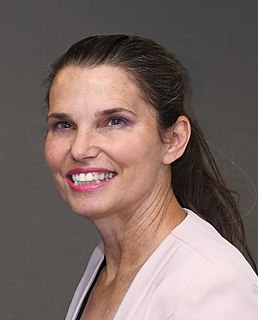A Quote by Barbara Tuchman
The Germans could not get over the perfidy of it. It was unbelievable that the English, having degenerated to the stage where suffragettes heckled the Prime Minister and defied the police, were going to fight.
Related Quotes
There are some issues where ministers should come and talk to the prime minister, if the prime minister hasn't already talked to them. Any issue which a minister thinks is going to be profoundly controversial, where we do not have a clear existing position, it is important that there be a conversation between the minister and the prime minister. I think they all understand that and I think it is working very well.
I was a very senior minister in the Howard government and I sat around this particular table [in the prime ministerial office] in many discussions. The difference between being a senior minister and the prime minister is that ultimately the buck does stop with the prime minister and in the end the prime minister has to make those critical judgement calls and that's the big difference.
I'll tell you whose view on [Bashar] Assad is the same as mine. It's Prime Minister [Benjamin] Netanyahu. Prime Minister Netanyahu has said Israel doesn't have a dog in that fight because Assad is a puppet of Iran, a Shia radical Islamic terrorist, but at the same time, Prime Minister Netanyahu doesn't want to see Syria governed by ISIS.
In our party, for the post of the prime minister or chief minister, there is no race, and nor does anyone stake their claim. Who will be the prime minister or chief minister, either our parliamentary board decides on this or the elected MLAs, in the case of chief minister, and MPs, in the case of the prime minister, select their leader.
Things have gotten openly more extreme in the last few years. I was lecturing in Hungary, whose prime minister, Victor Orban, is an example of this trend. All over Budapest, statues have been replaced, museum exhibits have been redone, to turn ethnic Hungarians, not Jews, into the prime victims of the Germans during World War II. Five years ago, who would have thought this possible?
The landscape in academic science is traditionally male-dominated. Women didn't always see themselves there - there was a lack of role models, a lack of champions. It really helped when the Prime Minister appointed a gender-balanced cabinet. That was well-received and people realized that, if the Prime Minister could do it, why can't there be equity other places?






































